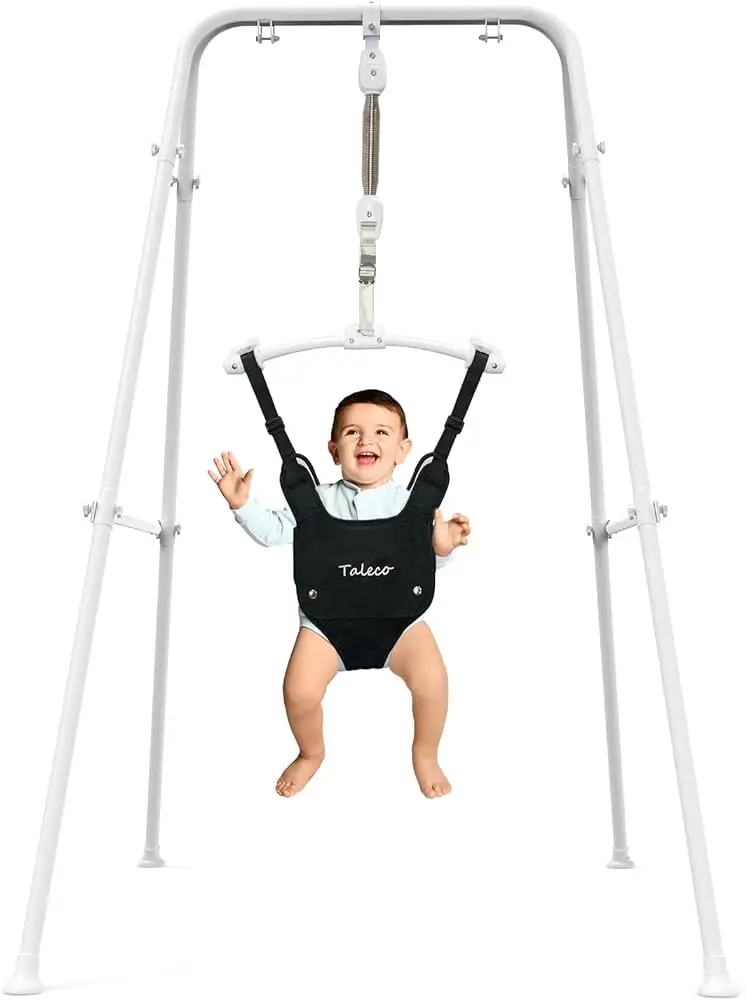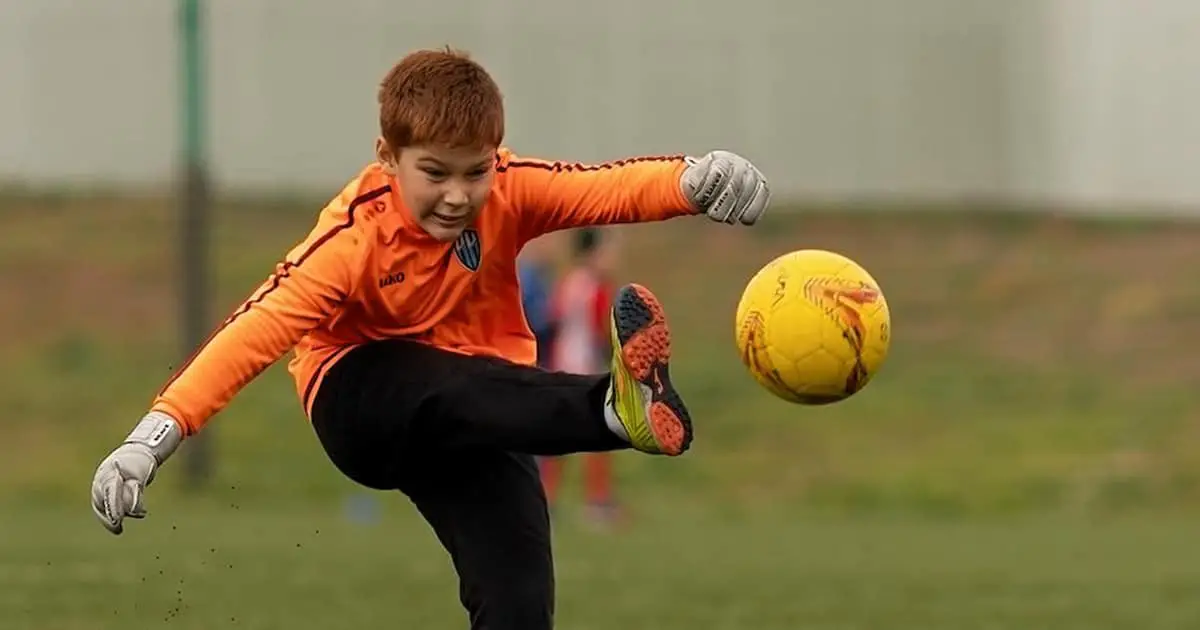How to Master Competition-Related Stress in Youth Sports
( If you purchase through our sponsored links, we may receive a small commission at no extra cost to you )
To deal with competition-related stress in youth sports, it’s important to focus on effective coping strategies and develop a positive mindset. Here are some helpful tips.
Youth sports can be highly competitive, which not only brings excitement and joy but also leads to stress and pressure. With young athletes striving to succeed, competition-related stress can be a common challenge they face. It’s essential for coaches, parents, and guardians to guide them on how to effectively cope with this stress and maintain a positive mindset.
By teaching them valuable techniques and strategies, young athletes can learn to manage their stress levels and perform at their best. We will explore some practical tips to help youth athletes deal with competition-related stress and excel in their sports endeavors.

Credit: www.raisingarizonakids.com
Understanding Competition-related Stress
In the world of youth sports, competition has become an integral part of the game. While competition can provide valuable opportunities for growth and development, it can also bring about stress and anxiety in young athletes. Understanding competition-related stress is crucial for parents, coaches, and athletes themselves to effectively address and manage this issue. In this section, we will delve into the definition and symptoms of competition-related stress, as well as explore the various factors that contribute to it.
Definition And Symptoms Of Competition-related Stress
Competition-related stress refers to the physiological, emotional, and cognitive responses experienced by youth athletes when facing competitive situations. It is often characterized by a sense of pressure, fear of failure, and a constant need to outperform others.
Here are some common symptoms that young athletes may exhibit when experiencing competition-related stress:
- Increased levels of anxiety or nervousness
- Difficulty concentrating or focusing during competitions
- Feelings of self-doubt and low self-confidence
- Changes in sleep patterns or insomnia
- Physical symptoms such as headaches, stomachaches, or muscle tension
- Impaired decision-making and problem-solving abilities
- Decreased enjoyment and motivation in sports activities
- Overly critical self-evaluation and preoccupation with the opinions of others
Recognizing these symptoms is vital for identifying and addressing competition-related stress effectively. It is essential to create an environment that nurtures the athlete’s well-being while teaching them how to cope with the pressures that come with competition.
Factors Contributing To Competition-related Stress
Competition-related stress can arise from various interconnected factors. By understanding these factors, coaches and parents can take proactive steps to minimize potential stressors. Here are some key factors that contribute to competition-related stress:
1. Fear of Failure:
Many young athletes have an intense fear of failure and feel immense pressure to succeed. The fear of making mistakes, disappointing themselves or others, and losing can significantly impact their stress levels.
2. High Expectations:
External factors such as parents, coaches, and teammates can place high expectations on young athletes, leading to heightened stress levels. These expectations can create a constant need to prove themselves and meet the standards set by others.
3. Comparisons and Social Pressure:
In an increasingly competitive sports environment, young athletes may constantly compare themselves to their peers. Social pressure and the desire to be better than others can significantly contribute to competition-related stress.
4. Overtraining and Burnout:
Intense training schedules, excessive pressure to excel, and lack of rest can push young athletes to the point of burnout. Overtraining and burnout can heighten stress levels, negatively impacting both physical and mental well-being.
5. Lack of Coping Strategies:
If young athletes have not been taught proper coping strategies to manage stress, they may struggle to handle competitive situations effectively. The absence of effective stress management techniques can exacerbate competition-related stress.
By addressing these contributing factors and implementing strategies to mitigate them, parents, coaches, and athletes can play a pivotal role in reducing competition-related stress. Supporting young athletes through their competitive journey and fostering a positive environment can help them thrive and excel both on and off the field.

Credit: www.rochester.edu
Coping Strategies For Youth Athletes
Participating in youth sports can be a thrilling and enjoyable experience for young athletes. However, it is not uncommon for them to face competition-related stress, which can have a negative impact on their performance and overall well-being. To help youth athletes effectively cope with this stress, it is essential to implement some proven strategies. In this blog post, we will explore three powerful coping strategies for youth athletes to manage competition-related stress and thrive in their sports endeavors.
Building A Strong Mental Foundation
One of the most effective ways for youth athletes to deal with competition-related stress is by building a strong mental foundation. This involves developing a positive and confident mindset that can help them face challenges with resilience. To build this foundation, athletes can:
- Embrace failure as an opportunity for growth
- Practice positive self-talk to build self-esteem
- Cultivate mental toughness through visualization exercises
- Seek support from coaches and mentors
By focusing on mental strength and adopting a growth mindset, young athletes can develop the resilience they need to overcome competition-related stress.
Practicing Mindfulness And Stress Reduction Techniques
Mindfulness and stress reduction techniques can significantly help youth athletes manage competition-related stress. By incorporating these practices into their routine, athletes can learn to stay present, calm their minds, and effectively handle stressful situations. Here are some strategies they can try:
- Deep breathing exercises to promote relaxation
- Meditation for improved focus and clarity
- Yoga or stretching routines to release tension
- Progressive muscle relaxation techniques to ease physical and mental stress
When youth athletes practice mindfulness and stress reduction techniques regularly, they develop the ability to stay centered and perform at their best, despite intense competition.
Setting Realistic Goals
Setting realistic goals is paramount for youth athletes, as it allows them to have a clear sense of direction and purpose. Unrealistic expectations can lead to increased stress and disappointment. To set realistic goals, athletes should:
| Steps to Set Realistic Goals |
|---|
| 1. Evaluate their current skill level and performance |
| 2. Identify areas for improvement and set specific targets |
| 3. Break down their goals into manageable milestones |
| 4. Regularly review and adjust their goals based on progress |
By setting realistic goals, youth athletes can reduce stress and focus on continuous growth, enhancing both their performance and enjoyment of their chosen sport.
Competition-related stress is a natural part of youth sports, but with the right coping strategies, young athletes can navigate through it successfully. Building a strong mental foundation, practicing mindfulness and stress reduction techniques, and setting realistic goals are three essential strategies that can empower youth athletes to perform at their best and find joy in the competitive world of sports.
Supporting Youth Athletes In Managing Competition-related Stress
Supporting youth athletes in managing competition-related stress is crucial for their overall well-being and performance on the field. The pressure to succeed in sports can sometimes become overwhelming for young athletes, leading to stress and anxiety. However, with the right guidance and support, parents and coaches can help these athletes effectively navigate competition-related stress, helping them develop valuable skills that will benefit them throughout their lives.
Role Of Parents And Coaches
Parents and coaches play a significant role in supporting youth athletes and promoting their emotional well-being in the face of competition-related stress. It is essential for parents to create a supportive and nurturing environment at home by:
- Encouraging open communication
- Refraining from placing excessive pressure on their child
- Setting realistic expectations
- Emphasizing the importance of effort and personal growth
Coaches, on the other hand, have the responsibility of creating a positive and growth-oriented team culture. They can:
- Foster a sense of camaraderie and unity within the team
- Promote sportsmanship and fair play
- Provide constructive feedback and encouragement
- Ensure that athletes feel valued and supported as individuals
Creating A Positive And Supportive Team Environment
A positive and supportive team environment is fundamental in helping youth athletes manage competition-related stress. When teammates are supportive and encouraging, it creates a sense of belonging and helps alleviate anxiety. Coaches can foster this environment by:
- Encouraging teamwork and collaboration
- Promoting a culture of mutual respect and inclusivity
- Organizing team-building activities and events
- Providing opportunities for athletes to celebrate each other’s successes
Teaching Positive Self-talk And Resilience
Teaching youth athletes the power of positive self-talk and resilience is a valuable skill that can help them manage competition-related stress effectively. Coaches and parents can guide athletes by:
- Encouraging athletes to replace negative thoughts with positive affirmations
- Teaching them techniques for managing stress, such as deep breathing or visualization exercises
- Helping them understand that setbacks and failures are part of the learning process
- Empowering them to bounce back from disappointments and setbacks
By focusing on positive self-talk and resilience, young athletes can develop the mental strength needed to handle competition-related stress in a healthy and productive way. This not only enhances their performance on the field but also prepares them for the challenges they may encounter throughout their lives.

Credit: kids.frontiersin.org
Frequently Asked Questions On How To Deal With Competition-related Stress In Youth Sports?
What Steps Can Be Taken To Reduce Competitive Stress Within The Youth Sport Environment?
To reduce competitive stress in youth sports, focus on creating a positive environment: encourage teamwork, emphasize skill development over winning, promote open communication between players and coaches, provide support and recognition for effort rather than just results, and encourage a healthy work-life balance.
How Do You Manage Competition Stress?
To manage competition stress, focus on these strategies: prioritize tasks effectively, create a schedule to stay organized, practice relaxation techniques like deep breathing or meditation, maintain a healthy lifestyle with regular exercise and proper nutrition, and seek support from friends, family, or a mentor.
How Do You Overcome Competition Anxiety?
To overcome competition anxiety, practice deep breathing and positive self-talk. Focus on your strengths and prepare well. Visualize success and stay present in the moment. Take breaks to relax and recharge. Remind yourself that competition is a chance for growth and learning.
Stay confident and trust in your abilities.
How Do You Get Rid Of Tournament Stress?
Reduce tournament stress by practicing deep breathing, doing relaxation exercises, staying well-rested and hydrated, maintaining a balanced diet, and managing your time effectively. Additionally, engage in physical activity, connect with supportive friends, and visualize success.
Conclusion
Dealing with competition-related stress in youth sports is crucial for their overall wellbeing and success. By implementing strategies such as setting realistic goals, emphasizing fun and teamwork, and encouraging open communication, parents, coaches, and athletes can help alleviate stress and create a positive sports environment.
Remember, youth sports should be about personal growth and development rather than solely focusing on winning. By fostering a supportive and inclusive atmosphere, young athletes can navigate competition with confidence and resilience.


